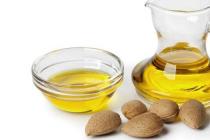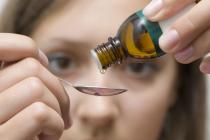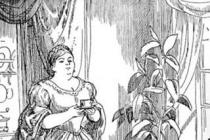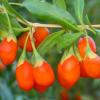Unexpected and unknown facts about the lemon.
- Do you know where and who brought the lemon? This sour fruit originally from India came to us thanks to the wars of Alexander the Great. Initially, the lemon was called the Indian apple.
- Lemon protects the body from scurvy. The British Admiralty even awarded J. Cook a gold medal from the Royal Society for saving the lives and health of sailors.
- With the help of a lemon, you can even disrupt the concert. So the concert of the brass band was disrupted by the children who were sitting in the front rows. Due to excessive salivation, the musicians were unable to play instruments.
- There is a tradition to eat a lemon after drinking tea. And she went from D. Shostakovich, whom Elizabeth II invited to a tea party. According to etiquette, it was not customary to eat a lemon, but the composer, not knowing this, ate a lemon. The queen was not at a loss and also took out a lemon from the bottom of the cup and ate it.
- As you know, the olive branch is a symbol of peace, the laurel is a symbol of glory, and the thorn is a symbol of severity and punishment. Lemon on a tip from O.Yu. Schmidt became a symbol of friendship of 126 countries.
- Foreign journalists award the title of lemon to the most unsociable athletes. The French called Yevgeny Kafelnikov the lemon because of his restraint, coldness and closeness.
- At dinner parties, blueberries are either not served at all, or they are served with slices of lemon: blueberries stain the lips, and lemon removes this color.
- In Spanish folklore, lemon is a symbol of bitter, deceived love. Sweet love is symbolized by an orange.
- Everyone knows that the biblical forbidden fruit is an apple. However, at different times and in different countries they also talked about figs, oranges, pomegranates, pears, quince and lemons.
- In the 17th century, the lemon was practically inaccessible to the common man. The rich ordered lemons from Holland. They were delivered to them in salted form. I wonder how they ate it afterwards?
Lemon Properties
The preparation of a fish dish, as a rule, is accompanied by a smell that we would like to get rid of. Lemon will help not only remove the fishy smell, but also disinfect.
- Lemon will prevent peeled fruit from turning brown
- How to make mayonnaise less calorie
- If you have an overdose...
- A glass of water will prevent the started lemon from drying out
Apples and bananas are not only tasty, but also very healthy, which is why they are often served for dessert. But it happens that pre-peeled apples and bananas darken, so they become not very attractive in appearance. This is due to the oxidation of the substances contained in them. Browning can be avoided by sprinkling peeled fruit with lemon juice. The action of citric acid will help preserve both the color and taste of the fruit.
Mayonnaise, which includes eggs and butter, makes dishes hearty and tasty, but at the same time, high in calories. To reduce the calorie content of mayonnaise, you can add vinegar to it. From this, the mayonnaise will not be as thick and it will take less than usual. To make the dish more healthy, you should replace the vinegar with lemon juice. It will not change the taste of mayonnaise, but it will keep your figure.
Sometimes, when tasting a dish, you feel that you have oversalted it, and, in an attempt to correct the situation, add water. But by diluting the salinity of the dish with water, you at the same time dilute the taste of other seasonings, and as a result deprive the future dish of its true taste. Therefore, in this case, it is better to use lemon: immediately add lemon juice to the salted dish. This recommendation applies to boiled dishes, fried dishes, vegetable and fish salads, etc.
You need to add lemon juice little by little, constantly tasting the dish. If you feel that the cooked food is salty, you can serve lemon juice on the table in advance so that you can use it at any time. If you feel like something is missing from the dish, add vinegar. It will give the dish a deeper flavor. By using lemon and vinegar in your cooking, you will greatly increase your culinary skills.
It often happens that you have half a lemon left unused. You can save it by putting it in the refrigerator and wrapping the cut in plastic. But the moisture gradually evaporates even through polyethylene, and after a while the lemon dries up. To maintain freshness, lemons need to get the right amount of moisture. We have a secret that will help keep lemons fresh for a long time. First of all, you need to find a not very large glass that would fit a lemon. Pour a little water into it and place the lemon cut side down so that the cut does not come into contact with the water. To do this, use a glass tapering downwards.
Sometimes, in search of a particular medicine, we come to a pharmacy and, having found the necessary drug on the counter, we spend a lot of money on its purchase. Many imported novelties are beyond the reach of most people at all. Meanwhile, there are no less effective, but cheaper “green pharmacy” products that can be used both for the prevention and treatment of many diseases. Lemon occupies a special place among them.
Application
Lemon has been widely used in medicine since ancient times. In those days, the Egyptians used it to neutralize poisoned food and in typhoid epidemics. Lemon was brought to Europe only in the Middle Ages. Europeans used its fruits to prevent plague, malaria, fever, and also as an antidote for snake bites. Herbalists recommended drinking lemon juice to lower blood pressure, remove toxins from the liver, relieve pain from arthritis, heart disease and jaundice, and strongly advised pregnant women to eat it. English sailors took lemons with them when they sailed to prevent scurvy. At the end of the 15th century, the medicinal properties of lemon were officially recognized; today it is widely used in modern medicine.
Phytotherapy has become increasingly popular in recent years. However, it is not at all necessary to know all the variety of medicinal plants that traditional medicine has. It is quite enough to use several herbal preparations, the most versatile and suitable for you. At the same time, it must be remembered that, despite the seeming safety of herbal medicine, the use of medicinal plants not according to indications, exceeding their dosage can do more harm than good. Women should be especially careful to practice phytotherapy on the eve of pregnancy.
This information is not meant to be a reference for medical practitioners and is in no way intended to replace your doctor when you are sick. Therefore, we strongly advise: before undertaking any therapeutic measure on your own, consult with a specialist. This is because the recommendations given here may not always provide the desired result, as they may not be entirely suitable for you. This often occurs in medical practice. There are no universal recipes and panaceas in such a multifaceted science as medicine. Therefore, it will always be better to coordinate our advice with your doctor. If, in consultation with a specialist, you receive recommendations that do not coincide with ours, strictly adhere to his instructions. When prescribing treatment, the doctor will take into account your individual qualities, the specifics of a particular situation, and the specifics of the impact of various therapeutic measures on your body.
Use of this book as a guide to treatment is acceptable only in situations where for some reason there is no possibility of providing specialized medical care or while waiting for a doctor. Always remember that there are situations when it is dangerous to self-medicate and an urgent consultation with a doctor is required.
We hope that lemon will be useful to you in the treatment of many diseases and will find proper use in your family. Be healthy!
From the history
The name "lemon" comes, presumably, from the Malay word "lemo"; and in China, this plant is called "limung", which means "beneficial for mothers." Lemon culture has ancient roots. According to Decandol, India and Indochina are considered the birthplace of these trees, where they grow wild in the Nilshkhim mountains, at the foot of the Himalayas. From there, the lemon gradually penetrated into Mesopotamia, where it acclimatized.
In written sources, the lemon was first mentioned in the 12th century, although it was grown in China 2200 years before. e. More than three thousand years ago, people knew about the healing properties of lemon and used its fruits to treat many diseases. According to legend, Pharaoh Mikeren (Menkaur) - his pyramid is located next to the greatest pyramids of Khufu and Cheops - drank a miraculous composition of garlic and lemon to maintain vigor of body and spirit. This recipe, developed by the ancient sages, helped to strengthen the immune system, normalize metabolic processes and create energy reserves to maintain vitality and positive emotions. Thanks to the healing potion, Pharaoh Mykerena ruled Egypt for a total of 63 years and died of natural causes, which was very rare in those days.
Ancient medicine recommended lemon for vomiting, fever, and diarrhea. The stomach was washed with a decoction of its fruits, the peel was used for snake bites. As a prevention of cholera and jaundice in the countries of Asia Minor and the Middle East, sour fruits of a medicinal tree are still added to many dishes.
In ancient Babylon, this miracle plant was also known. Jews brought lemon fruits to the synagogue on the day of the religious holiday of hay worship.
Theophrastus called the lemon the apple of the Mussel. Among the Romans, this plant appears in the 4th century AD. e., after Palladius brought it to Italy from Media.
The Arabs contributed to the active spread of lemon in Africa, Europe; from the gardens of Oman in Egypt they brought it to Palestine in the 10th century, and from there in the 14th century the crusaders brought it to Italy and Sicily.
There is a legend that emphasizes the importance of the lemon among the Arabs and Persians. One noble Persian, a favorite of King Khosrov, fell into disfavor and ended up in prison, where, by order of the ruler, he was allowed to choose food to his liking. The captive asked to give him a lemon, saying that the aroma of this fruit gladdens his thoughts, the peel and grains are good for his heart, he finds food in the pulp, and quenches his thirst with juice.
Another ancient legend tells that the Greeks, delighted with the brilliance and aroma of the lemon, wanted it to serve as an emblem of their fun on the day when the goddess of the earth received news of the wedding of Jupiter and Juno. Since then, the lemon began to appear in marriage ceremonies.
Speaking about the healing properties of lemon, the ancient Roman scientist Pliny argued that the fruits of this tree are a good antidote. According to Athenaeus, the criminals, condemned by the tyrant Clearcus to death by snake bites, were saved by eating lemons before execution.
In the 11th century in China, lemons were prescribed to patients for healing wounds, lung diseases, and scurvy.
In ancient Eastern medicine, lemon was used to treat certain diseases of the internal organs. According to Al Beruni (X-XI century), lemon fruits tan the stomach and strengthen the heart. Oriental medicine also considered lemon to be a wonderful remedy for treating wounds and lung diseases, as well as an antidote for various poisonings. In the 11th century, Avicenna wrote about lemon as the best medicine for heart disease, recommended that it be eaten by pregnant women and jaundice. Muhammad Hussein Sherazi (XVIII century) recommends lemon in the treatment of bronchial asthma, tonsillitis, palpitations, to eliminate the symptoms of a hangover and other diseases.
In the Middle Ages, Matheus Silvarius used lemon juice as an anthelmintic. During the Renaissance, lemon was used as an anti-plague agent. The physician of this era, Mizol, recommended drinking lemon juice as a preventative against poison and plague. Other physicians of this era considered lemon to be a diuretic.
According to Lind's research, in 1757 orange and lemon juice were considered the most valuable remedies for scurvy. For this reason, English sailors took lemons with them when sailing, and in 1795 a special law was even issued on the daily issuance of lemon juice to ship crews (30 g per day). Thanks to the lemon among the Russian sailors on the ships "Nadezhda" and "Neva" under the command of Admiral Kruzenshtern in 1803-1806. during the trip around the world there was not a single case of scurvy. There is also evidence that at the end of the 18th century lemon juice was used as an antirheumatic agent.
The first information about the cultivation of the lemon tree in the gardens of Georgia dates back to the beginning of the 18th century. Currently, lemon is bred in the subtropical zone of the Caucasus. In 1934, this plant was brought to Tajikistan, where it is grown in semi-closed trenches. Up to 500 fruits are harvested from one tree. The largest plantations of lemon trees in the world are in Italy.
Lemon was brought to Russia more than a hundred years ago from Turkey. In the village of Pavlovo-on-Oka, not far from Nizhny Novgorod, Turkish merchants visited and treated their owners with lemons. From lemon seeds, residents began to grow lemon trees at home. During the season, 10-15 fruits were removed from one tree. Since that time, the passion for indoor gardening began to spread throughout Russia.
Lemons were brought to Europe from India by the army of Alexander the Great, before these fruits were not known to Europeans. Despite the very sour taste, they were then chewed just like apples, and they were called "Indian apples."
Everyone knows the biblical story about the forbidden fruit - the apple. But in different countries and at different times, orange, fig, pomegranate, quince, pear and lemon were mentioned as forbidden fruits.
The famous navigator J. Cook became famous not only for his numerous geographical discoveries, but also for the fact that he found a way to protect sailors from scurvy, which raged in the fleet at that time. For the discovery of the antiscorbutic properties of lemon, J. Cook received a gold medal from the Royal Society.
Lemons were practically inaccessible to a simple Russian person in the 17th century. Rich people ordered these delicacies from Holland in a salty form.
It is known that the olive branch is a symbol of peace, the laurel is of glory, and the thorn is of punishment. At the suggestion of O. Schmidt, the lemon began to be considered a symbol of friendship between countries.
In Spain, the lemon symbolizes bitter deceived love, the symbol of happy love is the orange.
If you attach zinc and copper wires to the LED, and stick their other ends into a lemon, as a result of a chemical reaction, the LED will light up.
In the middle of the 20th century, a particularly large variety of a polyploid dessert lemon was bred by the Soviet breeder Lapin. It was not widely used, but the phrase of one of the officials that "Soviet people do not need lemons that do not fit into Soviet glasses" became famous.
One day a brass band concert was disrupted because of lemons. In the front rows, the listeners defiantly chewed lemons. At the sight of this heartbreaking spectacle, the musicians began to salivate, which prevented them from playing their wind instruments.
Once Dmitri Shostakovich got an appointment with Queen Elizabeth II of Great Britain. Having finished drinking tea, the famous composer took a slice of lemon from the cup with a spoon and ate it. Those present at the reception were confused and embarrassed, since etiquette did not provide for this. Elizabeth II, having decided to correct the awkward situation, followed the example of the Russian guest, and soon the custom of sipping tea with lemon spread throughout the country.
By the way, if blueberries are on the menu at dinner parties, then they offer berries along with slices of lemon. Lemon neutralizes the coloring effect of blueberries.
And, finally, it is worth remembering Napoleon Hill's famous saying about life's troubles: "If life gives you a lemon, don't be upset - make lemonade out of lemon."
Margarita Ivanova
Municipal educational institution
"Secondary school No. 10"
Research
"The Amazing Lemon"
Performed:
Babikova Anna,
2nd grade student
Scientific adviser:
primary school teacher
Ivashova Tatyana Vasilievna
Pechora
2016
Introduction ................................................. ...............................................page 3
Theoretical part
1. Lemon ... What is it? ....................................... ...............page 4
2. From the history of human use of lemon ……………………..page 5-6
3. The legend of the lemon……………………………………………………….....p.6
4. Useful properties of lemon……………………………………………………………………………………………………………………………………………………………………………………………………………………………………………………………………………………………………………………………………………………………………………………………………………………………………………………………………………………………………………………………………………………………………………………………………….
5. Interesting Facts…………………………………………………………….p.9-10
6. How to choose lemons? .............................................. .............................page 11
II I. Practical part
The results of my research…………………... ……………………..p.11-17
IV. Conclusion …………………………………………………………….page 17
V. Bibliography …………………….……………………………..page 18
VI. Applications …………………………………………………………..p.19-28
I . INTRODUCTION
He is a sworn enemy of the common cold,
They will treat you.
We put slices in tea,
We drink with pleasure
Adding honey with raspberries
Because in the middle
It contains ascorbic acid.
It's full of acid
Dr. Aibolit - lemon!
Probably, there are hardly any people who have not tried, let alone seen a lemon.He is familiar to all of Russia, the yellow father is a lemon. They just treat him differently. Someone loves it so much that they will eat almost a whole lemon at a time and not wince at the same time, while for someone the mere sight of a lemon causes a grimace on their face. My interest in this fruit is not accidental. I really like to eat different fruits, including lemon, drink tea with lemon, eat just like that with sugar. Mom encourages me, says ithelp to cope with colds, flu, add strength.Maybe that's why I didn't get the flu during quarantine at school? Did lemon help me? What else is useful and interesting lemon?Thus the idea of the study was born.
Goal of the work: expand knowledge about lemon.
Tasks:
Highlight the virtues and amazing features of the lemon
conduct a survey of students and a series of experimentson the study of the properties of lemon
find interesting facts about lemons
prove the importance of using lemons in life
Hypothesis : lemon has not only healing, but also other interesting amazing properties.
Research methods : questioning, collection and analysis of information obtained from various sources, sociological survey, interviewing, experimentation, observation.
Relevance of the topic : This topic concerns not only me, it may be of interest to everyone (both children and adults), because it reveals some of the secrets of the lemon.Knowledge of the healing properties will help to provide medical care at home without the use of drugs, and knowledge of other beneficial propertiesis also indispensable to man.
Object of study:
the lemon itself 
Subject of study: useful and unusual properties of lemon.
II . THEORETICAL PART
2.1 Lemon… What is it?
In the explanatory dictionary of the Russian language, S. N. Ozhegov explains the word lemon. "Lemon is a citrus tree, as well as a juicy sour fruit with a hard fragrant peel."
Lemon is an evergreen fruit tree with a height of 3 to 5 m, with thorny branches.(rarely without them) and bright white flowers with a purple corolla. This tree is not long-lived.There are lemons at the age of 45-50 years. The fruits are oval, light yellow, with tuberculate rind, ripen in autumn.As a rule, lemons do not fall on their own in the first year of ripening. If they are not cut yellow before winter, then they begin to turn green again in the spring. In the summer, their peel thickens very much, in the fall it turns yellow again, as if ripening a second time. But two-year-old fruits, despite their size, have less taste and medicinal qualities, that is, they contain fewer vitamins and acids. Therefore, do not chase for large thick-skinned fruits, they may be "old".

Lemon belongs to citrus plants.It is a hybrid between citron and lime.
Its closest relatives are orange, tangerine, pomelo, grapefruit, citron, lime. There are many varieties of lemons. All of them differ in taste, size, skin thickness, leaf shape and tree height.
2.2. From the history human use of lemon
Lemon has been known since ancient times in many parts of the world. According to the legend, fragrant bright yellow fruits were presented as a wedding present to Hera when she married Zeus so that she would always remain young and beautiful: “Its aroma amuses the mind, the peel and grains are good for the heart, the pulp is excellent food, and the juice satisfies I'm thirsty." In some legends, one can find references to the "golden apples of immortality", about "rejuvenating apples". Maybe it's lemons.
India is considered to be the birthplace of lemons (although scientists still argue about this!).It is known that the troops of Alexander the Great brought lemons from India to Europe. Then the lemon was called"Indian apple" or"citron". Lemons were very expensive, almost worth their weight in gold.
They quickly spread throughout Europe.
In China, 3000 years ago, the fruits of this citrus plant were called lemon - "li" - medicinal, "mon" - fruit. The ancient Chinese used lemon to bring good energy into the home and exorcise spirits. Somesources claim thatThe first mention of lemons is found inancient Greek philosopher Theophrastus300 years before our era.He wrote that the fragrant fruit was not eaten, but was used only to fight moths: fragrant pieces of lemon were hidden in the folds of clothes.Sprinkling clothes with this fragrant agent, they were calm about their things.
In the ancient Greeks and Romans, "citrus" meant "smelling plant".
Later, lemons began to be used for other purposes - for example, in cooking. This fruit was added to various soups. Lemon was chewed to give freshness to the breath, and honey and wine were flavored with lemon juice. The Romans carried lemon with them, believing that it promotes healing. In the Middle Ages, there was a belief that lemons protected from the plague and saved from the bites of poisonous snakes.
Indian yogis at all times called lemon a universal remedy for keeping the body healthy. They said: "Every person should accustom himself to eat at least one lemon a day, or drink the juice of one lemon."
Doctors who lived in the Middle Ages tried to treat many diseases with the help of ripe lemon fruits. They used in the treatment of the lemon itself in its pure form, and the juice squeezed out of it, and the peel, they mixed the lemon fruit with other medicinal plants and vegetables. Various types of decoctions and infusions of zest were especially popular.
The usefulness of the lemon was noticed by sailors who made long voyages. The sailors were convinced that it was the lemons taken on the expedition that helped to avoid a serious illness - scurvy.
In the English Navy, a mandatory intake of 30 grams of lemon juice daily was introduced.NavigatorJames Cook received the Royal British Society Medal for curing many sailors of scurvy (a disease caused by an acute lack of vitamin C) with lemon. British sailors were even called lemongrass
In the Middle Ages, lemons were believed to ward off plague and to be an antidote for snake bites.
In the second half of the 17th century, lemon was also recognized in Russia during the time of Peter I. Lemon was brought to Russia more than a hundred years ago from Turkey.
Previously, the lemon was not available to the common man. Rich people ordered lemons from Holland, and delivered them to Russia only in salted form.Interesting , as they then ate them, for our taste it is completely unusual. When lemon trees were first brought to Russia, they were planted in greenhousesKremlin. But only a select few were allowed to admire this miracle. The king's associates were given the honor of being caretakers of the lemon. It was considered prestigious to have a lemon tree in your home.
More than 100 years ago, Russian peasants in the village of Pavlovo near Nizhny Novgorod started growing lemons in their huts. From here came the famous roomlemon variety - Pavlovsky
. Many residents of the city of Pavlovo have 4-5 small lemon trees at home. One indoor tree of this lemon gives, with careful, proper care, 10 - 16 fruits per year.
In the city of Pavlov at all Recently, a monument to the Pavlovsky Lemon was erected on the central square.
2.3. Caucasian legend about lemon
Once, a beloved servant of one of the Caucasian kings fell out of favor for some kind of offense. The enraged overlord ordered his servant to be immediately imprisoned and ordered the guards to feed the prisoner with only one kind of food. When asked how exactly, Vladyka, having mercy, answered: “Let him choose for himself.” The prisoner had no choice but to fulfill the king's will. And he fulfilled it, asking him to give him only ... lemons. And he explained to the perplexed guards:
“The aroma of a lemon will amuse my thoughts, the peel of fruits and grains will be good for my heart, in the pulp of a lemon I will find food for myself, and I will quench my thirst with juice.”
Now it is difficult to say whether this was actually the case. But one thing is certain: this ancient legend accurately reflects the significance that these fruits had for our ancestors.
4. Useful properties of lemon
Lemon is widely used in medicine.
First of all, because it contains vitamin C, which is very important for strengthening the immune system. Lemons save from seasonal colds and infections.
Removes waste and toxins from the body.
Improves performance.
Improves attention and memory.
Reduces stomach acidity.
Controls pressure.
It has a mild diuretic effect.
Kills microbes, prevents the development of bacteria.
Strengthens the walls of blood vessels.
Thins the blood.
It has a wound healing effect for external skin problems.
lemon use and bronchial asthma, diseases of the liver and stomach, to strengthen the heart. Lemon is an excellent preventive and therapeutic agent! Those who love lemons can maintain their health until old age.

Lemon for beauty
Lemon is very often used for cosmetic purposes. Good for hands and nails.
Hand baths with lemon juice strengthen and whiten nails.
Rinsing with a solution of lemon juice refreshes and disinfects the oral cavity, removes bad breath for a long time.
To whiten your teeth, you can add drops of lemon juice to your toothpaste. You can also whiten your teeth directly by rubbing with a slice of lemon or zest, provided that the enamel is strong enough.
Lemon is also good for the skin.It improves the complexion, keeps the skin youthful.
With it, you can get rid of freckles, age spots and rejuvenate the skin of the face. Freckles can be wiped with fresh lemon juice, or leave lemon slices on them for a few minutes.
To add shine to dull hair, you can rinse it with water to which lemon juice has been added. If you have oily hair, it is good to add lemon juice to rinses.
In the store you can buy soap with lemon juice.You can make your own candles with the addition of lemon peels when lit. eat them your room will be filled with a pleasant aroma.
Lemon on the farm
Lemon is an indispensable helper in the household.
To get rid of a stain on clothes from a felt-tip pen, you need to apply lemon juice and fine salt on the stain, rub it, and then wash the clothes.
Many people know the recipe for how to get rid of the smell of fish or vegetables on their hands, on knives and cutting boards in the kitchen. You just need to rub everything with a slice of lemon.
To restore shine to metal pans, you need to rub them with a peel with lemon pulp, and then rinse with water.
If you have a lemon tree growing, then there will never be moths at home. The moth does not like the smell that the lemon emits.
If you have ants in your home, don't panic! Smear lemon juice on their "favorite places" and the ants will forget their way to your house.
You can save a salty dish by adding a little lemon juice to it. And the food becomes not only tasty, but also useful.
a drink called"Lemonade" appeared in the 17th century. Initially, it was made from lemon tincture and lemon juice.
Lemonade is a sweet, often carbonated drink. By the way, lemonade was one of the first drinks to be produced on an industrial scale.
Lemon in cooking
Lemons are eaten fresh, and are also used in the manufacture of confectionery and soft drinks. As a spice, lemon is used in various , sweet dishes, biscuits, sauces, in fish, poultry and rice dishes. Lemon juice improves the taste of various dishes, fried fish, cold appetizers, salads. Lemons are also used to make jams, sauces, creams, syrups and drinks. Lemon slices are a beautiful decoration for second courses. Very tasty lemon cakes and pies.

Lemon pieces are added to . In our school canteen, we often drink tea with lemon, because it is a wonderful tonic drink. It can be safely called a health drink. Lemon tea is a great way to recharge yourself in the middle of the day and revive brain activity.
5. Interesting Lemon Facts
As is known , the olive is a symbol of peace, the laurel is a symbol of glory, and the thorn is a symbol of severity and punishment. O.Yu. Schmidt vaccinated an ordinary lemon, and ten years later thislemon has become a symbol of friendship 126 countries

There is a tradition to eat a lemon after drinking tea. And she went from Dmitry Shostakovich, a Russian composer, whom Elizabeth II invited to a tea party. According to etiquette, it was not customary to eat a lemon, but the composer, not knowing this, ate a lemon. The queen was not at a loss and also took out a lemon from the bottom of the cup and ate it. Now in Europe tea with lemon is called"tea in Russian"
An interesting discovery for me was that, it turns out, there are reallemon festivals.
The Lemon Festival in the city of Menton in France is a celebration that attracts hundreds of thousands of visitors. 130 tons (!) of delicious citrus fruits are used to prepare this holiday.The city is decorated with the most incredible figures of lemons, oranges, grapefruits. For several days, citrus castles, fairy-tale characters from lemons and huge edible trees grow here! Along the coast is a parade of golden fruit corteges adorned with citrus fruits and flowers. Everyone is invited to try new varieties of lemons, drinks and sweets made from the “yellow king of the holiday”.




To date, representatives of 170 countries of the world have done more than 600 grafts to the tree.

citrus fruits. The fruit is yellow with green stripes and has pink flesh. The only lemon variety that is used in the production of pink lemonade.

In "Hit Parade""The healthiest citrus fruit" (not only in terms of the amount of vitamins, but in general in terms of the effect on the body) lemon takes
2nd place after orange
Many studies by scientists have proven that in a room where lemons are grown,the air is almost sterile. Many pathogenic organisms do not multiply here. Thus, indoor citrus lovers are much less likely than others to fall ill with some infectious diseases. And it has even been noticed that everyone who deals with lemons, who has a lot of them in the house,become long-lived.

6. How to choose this amazing lemon? Helpful Hints:
Often we can see very beautiful, glossy - grated lemons in stores or on the market. They are usually larger than average. They can be waxed. You need to know that with age, the peel of a lemon becomes thicker and thicker, and there are less and less vitamins under it.
Hence the conclusion: large size for a lemon is not the main thing.It is better to buy small lemons. Lemon that is younger, always with a green tail. Its peel is thinner, with a greenish color. Black dots on the peel are a bad sign. These lemons were frozen. There are fewer useful substances in them, and more bitterness.
Most Unhelpful in a lemon, it's the pits. They can provoke a strong secretion of bile and an allergic reaction. Athe most useful - white layer. It has the most vitamin C.
Probably every housewife knows that it is very useful to wipe the wooden cutting boards that we use every day with lemon juice. All microbes are destroyed. Don't forget to do this periodically.
III . PRACTICAL PART. Results of my research

3.1 Interviewing
Iapplied to the school nurse in order to find out the significance of the effect of lemon on human health. I learned from her about the positive effect of lemon on the human body. She advised me to eat lemon more often so as not to get sick and not miss classes due to illness. Lemon in winter and spring prevents beriberi!
3.2. Student survey

Conclusions from the survey:
28 people took part in the survey. Most of the guys have some idea about this fruit, half of the guys (14 people) do not know about the beneficial properties of lemon, almost all (27 people) want to learn more about lemons. (Annex 1)
3.3. Cognitive experiments with lemon
Experience number 1. "Tea Illuminator"
Target: Find out how lemon behaves with natural tea dye that changes the color of our teeth.
Hypothesis: Let's assume that the lemon, due to its acidity, discolors the color of the tea.
I took 2 mugs and poured strong tea into them. After that, I put a piece of lemon in one of the mugs.Lemon discolored the tea color, thereby protecting our teeth from the appearance of a yellowish tint on them.



Conclusion: our hypothesis was confirmed.Lemon really is a magician - an illuminator!
Experience number 2. "Lemon and apple are friends"
Target: find out how the lemon affects the apple.
Hypothesis: Lemon has no effect on apple.
Let's cut the apple in half. Put a lemon on one of the halves and rub an apple with it. After 5 minutes, the half of the apple that was not grated with lemon began to darken. After 15 minutes, the half darkened more.
Question: Why did one half of the apple turn brown and the other did not?
Half of the apple darkens due to the oxidation of tiny iron particles contained in the apple. These particles come into contact with oxygen in the air and begin to darken.



Conclusion:
the hypothesis was not confirmed. If cut apples are smeared with lemon juice, they will look fresh and beautiful, and no less healthy.

Experience No. 3 "Lemon - stain remover"
Target: Find out how a stained lemon behaves.
Hypothesis: Lemon can help remove some stains.
Let's try to remove the stain from the felt-tip pen with a lemon. We sprinkled the stained place with salt, then rubbed the stain with lemon juice…
And, indeed,spots gone!
But when using lemon juice to remove stains, you must remember that it is an acid, and therefore you need to be careful with colored fabrics.




Conclusion: our hypothesis was confirmed.
Lemon helps remove some stains
without the use of chemicals.
We learned that in the past, some people who were being monitored used "magic ink" that did not leave a mark on paper. Having received such a message, it was necessary to heat it over the flame and the letters on the paper showed through. For such secret correspondence, milk was most often used. Is it possible to use lemon juice for a secret message? This is what we decided to check.

Experience No. 4 "Invisible Lemon" Target: learn how lemon juice behaves when heated.
I squeezed the juice from 1 lemon, wrote cotton swab message and waited for the juice to dry. There were no visible marks on the paper at first. Then I began to heat the paper under the table lamp and the letters became visible!


Scientific substantiation of the result:
Lemon juice is an organic substance. When exposed to heat, organic matter darkens. This is due to the fact that the carbon that is part of their composition is released from high temperature.
Conclusion:
when heated, lemon juice darkens, acquires a yellow tint.
My "letter" was declassified.
Experience No. 5 "Lemon-swindler"
Target: Learn how lemon interacts with baking soda.
Hypothesis: Lemon juice can be a soda quencher and give off volatile gas.
I poured soda into a plastic bottle, then poured squeezed lemon juice into the same place and quickly put a balloon on the bottle. As the bottle began to release gas, my balloon began to inflate.


Conclusion: Lemon juice and soda were able to inflate the balloon!
Experience No. 6 "Lemon-battery"

Target: Check the electricity production of a lemon
We put a lemon on the table and stick a copper wire and an iron clip into it from different sides, attach each item to a multimeter device. The device shows a voltage of 0.27 volts. So, a lemon is not just a fruit, but also a battery! It has current!
Conclusion: lemon can be a source of energy.
When you use the kettle for a long time, lime deposits appear on the bottom. It is very easy to remove this plaque with citric acid. To do this, you just need to pour water into the kettle, pour a bag of citric acid into it, boil it and let it stand for a bit. Then drain the water and rinse the kettle. And our kettle is like new again. Let's check on experience.
Experience No. 7 "Lemon-Cleaner"
Target: Find out how lemon interacts with limescale in a teapot.
Hypothesis: Let's assume that citric acid removes limescale from the walls from the kettle. Pour water into the kettle, add acid and boil the kettle. Pour out the water, rinse. Purity! Glitter is back!
Conclusion:
When boiling the kettle with the addition of citric acid, limescale is removed.



Experience No. 8 "Lemon swimmer"
Target:
to find out why an unpeeled lemon floats in water?

Peel and put the peeled lemon into the water. He drowned! Do you think unpeeled lemon is heavier? Of course yes! What happens if you put unpeeled lemon in water? Surprisingly - it does not sink! Maybe it's some kind of special lemon?! I turned to the school biology teacher N. F. Shchetinina.
She explained that it was all about the peel.
Conclusion:
There are many air bubbles in the peel. It is they who keep the unpeeled lemon afloat.
Marvelous! 



But we wondered if there are any precautions when using it?
We decided to conduct several experiments with the lemon fruit.
Experience No. 9 "Lemon pest
Target:
find out if lemon and dairy are friends?
Some lemon juice was added to a cup of milk. Milk immediately curdled, lumps formed.
Conclusion: lemon is undesirable to use with dairy products, as milk protein coagulates from acid
Experience No. 10 "Lemon-destroyer"
Target: find out if citric acid dissolves eggshells
Lemon juice was dropped into the shell. As a result, foam formed and even a hiss was heard. This reacted with the calcium in lemon juice, which is found in eggshells. He began to collapse.
The enamel of the teeth also contains calcium, which is so necessary for a person for the strength of the teeth. So, the use of lemon in its pure form in food should be limited,lemon juice is bad for you
tooth enamel
, it destroys it, especially if it enters the oral cavity along with sugar.Conclusion:
lemon juice dissolves calcium.


Experience No. 11 "Choice of lemon"
Target:
find out the preference for choosing a lemon when buying
Hypothesis: the larger the lemon, the better.
It has been proven that large fruits are two-year-old fruits, have less taste and medicinal qualities, contain fewer vitamins and acids. The children were asked to choose one of two lemons using tokens. The result is:
sizequantity
10

Conclusion: the right choice has been made!
General conclusion from the experiments: the useful qualities of a lemon do not depend on its size. The experiments carried out prove that the lemon, along with many advantages, also has disadvantages. Lemon has not only useful, but also mysterious properties.No plant can compete with lemon in terms of its beneficial properties and magical powers!
IV . Conclusion
In the course of the study, we studied the role of lemon in human life, identified its properties.
Hypothesis put forward by us turned out to be correct.
The goal - to expand knowledge - has been achieved! Tasks completed
The experiments carried out and the review of information made it possible to draw the right conclusions about the meaning of the lemon, learn its history, many interesting facts ... Lemon properties are multifaceted. Lemon serves as a prophylactic, tonic, whitening, flavoring, tonic, restorative, bactericidal beneficial substance. Real doctor!
Lemon is widely used in cooking, cosmetics, and in everyday situations. Truly a lemon is a useful fruit, a mysterious fruit, a magical and mysterious fruit.
Therefore, the lemon can rightfully be called an amazing fruit..
I dare to advise everyone:
Try starting your day with a cup of warm water and lemon juice, as it invigorates and boosts the immune system.
The smell of lemon can increase efficiency, reduce drowsiness. And if you put lemon slices in the classroom, it will have a beneficial effect on the students.
Make friends with a lemon, use folk remedies and useful tips, trust the magic power of a lemon.
Observe etiquette when drinking tea with lemon.
A reliable doctor will save you from old diseases and protect you from new ones.Be healthy! And remember:
"When life hands you a lemon, don't complain - make it a lemon"(Napoleon)

v. List of used literature
Blaze A. - Encyclopedia of useful indoor plants. M .: Olma-Press, 2000.
Denisova T.A. "The Wonderful World of Plants": A guide for students. - 3rd edition M .: Education, 2004
Funny chemical experiments//Masterilka magazine (05/11/2010) Publishing house. "Karapuz".
"Lemongrad" V. Dadykin// "Science and Life" No. 12, 2004.
"The Fairytale Handbook of Health", ed. « ", 2004.
Encyclopedia "I know the world" Bagrova L.A.M.: AST, 2002.
Internet Sources:

VI . Applications
application number 1
Questionnaire - questionnaire "Lemon in my life"
How often do you eat lemons? A) dailyB) sometimes -
B) never
5 people
-18 people- 5 people
2.
How do you use lemons?
A) for food
B) for treatment
B) don't know
13 people
- 14 people- 1 person
3.
Are all parts of a lemon useful?
A) yes-
B) no-
B) don't know
- 15 people
7 people - 6 people
4.
Do you know about the health benefits of lemon?
A) yes
B) no-
B) not sure
8 people
-14 people- 6 people
5.
Can a lemon be called the "Healthiest Citrus Fruit"?
A) yes
B) no
B) not sure
-16 people
8 people - 4 people
6.
Is it possible to grow lemons at home?
A) yes
B) no
B) don't know
-17 people
8 people
3 people
7.
Would you like to know more about lemons?
A) yes
B) no
B) don't know
-27 people- 0 pers - 1 pers

application number 2
The use of lemon in everyday life.
1. Removing greasy stains
Sprinkle some salt (for abrasion) on half a lemon and rub it on the greasy stain, then wipe the surface with a rag.
2. Cleaning the kettle
To descale your kettle, fill it with water, add a handful of finely chopped lemon zest and put it all on the fire. After boiling, let the kettle with this liquid stand for an hour, pour out the liquid and rinse the kettle well.
3. Cleaning the microwave
Add the lemon zest to a microwave-safe dish half-filled with water. Turn on the oven at full power for 5 minutes, let the water boil and the steam condense on the walls of the microwave. Then just take out the dishes and wipe off all that dirt with a damp cloth.
4. Glass washing
Pour water into a spray bottle and add a few tablespoons of lemon juice. Use as you would any other window cleaner.
5. Polishing chrome surfaces
Rub such a surface with a squeezed half of a lemon, rinse and lightly polish with a soft cloth
6. Bleach for linen.
During washing, add half a glass of lemon juice to give your whites extra whiteness.
7. Removing marker marks from clothes
Mix lemon juice with table salt and apply on the stain. Wipe the soiled area and then wash the item as usual.
8. Insect repellent
If you have ants in your home, don't panic! Smear lemon juice on their "favorite places" and the ants will literally forget the way to your house. Or put lemon slices on doorsteps, window sills, near cracks and holes through which uninvited guests in the form of harmful insects can enter your home.
9. Removing bad smell from fish, onions, garlic from hands, knives and cutting boards.
After disinfection, rub the surface of the board, knife with half a lemon, leave for a few minutes and rinse. Rub your hands with lemon juice.
10. Removing an unpleasant smell in the refrigerator
Arrange the sliced lemon on a saucer and put it in the refrigerator. The bad smell will disappear fairly quickly.
11. Making a Scented Humidifier
Fill a bowl with water, add lemon zest to the water and place on the stove. After boiling, reduce the fire to a minimum and leave it like that for a while. The air will be humidified and filled with a fresh aroma.
12. Disinfection of the trash can.
Rubbing a lemon peel on a trash can will eliminate bad odors and kill any bacteria.
13. Adding shine to metal objects
To restore shine to metal pans, you need to rub them with lemon peel, on which the pulp remains, and then rinse with water.
14 . Freshness of products
If you put a lemon in a bowl of fruit, the fruit will stay fresh longer.
15. Getting rid of moths A handkerchief or cotton ball with a few drops of lemon juice in the closet helps to get rid of moths. And you can put lemon peels in the closet.
16. Getting rid of rust
Rust stains can be easily removed with lemon. Apply lemon juice to a dry cloth, leave for half an hour, then machine wash with regular powder.

application number 3
Lemon recipes.
Lemon roll.
1 st. flour, 20 g lemon juice, 1 tbsp. mix sugar and pour the dough into a baking sheet. Put in the oven for 30 minutes
Cream: 3 eggs, 1 tbsp. sugar and zest of 1 lemon - beat.
Spread the finished cake with cream and wrap with a roll. Decorate with lemon slices.
2. Lemon jelly.
1 lemon, 1 tbsp. sugar, 25 g gelatin.
Pour into the pot 3 tbsp. water, add sugar, stir and boil. Add the zest cut from half a lemon and dissolved gelatin to the hot syrup. Stir all the time. Pour hot syrup into molds, cool.
3. Lemonade
First, squeeze the juice from the lemon: only 2 tablespoons - and pour it into a glass of water. Now add 2 tablespoons of honey there and mix. Drinks can be served at the table.
4. Lemon juice with honey
For 1 serving: lemon juice - 1/2 cup, natural honey - 2 - 3 tablespoons, food ice - 1 - 2 cubes.
Stir honey thoroughly with lemon juice and cool. Serve the drink with edible ice cubes.
5. Lemon juice
For 2 liters of drink: large lemon - 2 pieces, cold boiled water - 2 liters, granulated sugar - 1 glass.
Pour cold water into a clean bowl and dissolve sugar in it. Squeeze the juice from 1 1/2 lemons into it and add a little zest. Cover the dishes and put in the refrigerator or on ice for 2 - 3 hours. Cut the remaining half of the lemon into circles. Strain the finished drink through cheesecloth or strainer. Serve the drink with lemon slices.
6. Homemade lemonade
For 1 serving: lemon juice - 1 tablespoon, granulated sugar - 1 - 1/2 tablespoons, sparkling water - 1 glass, lemon - 1 slice.
Pour lemon juice into a glass, add granulated sugar and mix, and then pour in sparkling water from a siphon. Serve chilled with a slice of lemon. You can also add some crushed edible ice.
7. Winter drink
For 1 serving: lemon juice - 1/2 cup, industrial strawberry syrup - 1 tablespoon, industrial lemon syrup - 2 teaspoons.
Lemon juice is strongly heated over a fire, but do not boil. Then pour it into a pre-warmed tea or punch glass, add strawberry and lemon syrups and mix well. Serve the drink hot.
8. Honey drink "Epic"
For 1 serving: lemon juice - 1 teaspoon, natural honey - 1 - 2 teaspoons, hot boiled water - 1 cup.
Put honey in hot water, put on fire and boil for 5 minutes. Then remove from heat and add lemon juice.
9. Drink "Wind Rose"
For 4 servings: lemon - 1/2 pc., cold pasteurized milk - 2 cups, 1 egg yolk, granulated sugar - 2 tablespoons.
Break a fresh chicken egg, separate the yolk, grind it with sugar and place in a mixer. Squeeze the juice from half a lemon, finely chop the zest and add all this to the mixer, then pour in cold milk and beat well until a rich foam forms. Drink immediately.
10. Candied Lemons
Peel - 1kg
Sugar - 1.3 kg
Water - 3 glasses
Citric acid - on the tip of a knife.
Soak peels removed from thick-skinned lemons for 2-3 days in cold water, changing the water 2-3 times a day. Then boil the crusts in boiling water for 20 - 25 minutes, drain the water, and dip the crusts into boiling syrup. Remove the syrup from the heat and set aside for 5-6 hours. Then boil the peels for 5-7 minutes 3-4 times with standing for 10-12 hours after each boil. At the end of cooking add 3 g of citric acid. Spread the crusts on a dish and dry in the air.
application number 4
lemon festival
In the small French town of Menton, from February 2 to March 9, the annual Lemon Festival is held. Lemons from Menton are definitely king among lemons: the warm climate of the French Riviera allows them to be grown all year round. Three harvests of lemons are harvested, the largest harvest is in March-April. The festival was conceived as a preparation for the richest harvest season in Menton.
Residents of the town are immersed in a fairy-tale world for three whole weeks! The city is decorated with the most incredible figures of lemons. For several days, citrus castles, fairy-tale characters from lemons and huge edible trees grow here! On Sundays, processions of citrus fruits are arranged ... A parade of golden fruits decorated with citrus fruits and flowers passes along the coast. Usually more than 130 tons of lemons participate in the parade! Everyone is invited to taste new varieties of lemons, drinks and sweets made from the “yellow king of the holiday”.
Fireworks are lit in the city, and dozens of folk music groups are walking around the city, performing French folk melodies, everywhere pass musical concerts and exhibitions.






application number 5
Lemon Storage Tips
If lemons are wrapped in parchment and placed in sand, they can be stored for several months.
You can store lemons in water: put the lemons in a bowl and pour water, which is changed once a week. So lemons are perfectly preserved for many months. Under normal storage conditions, lemons, if not spoiled, almost always dry out.
A cut lemon can be protected from spoilage if you put it cut on a plate or saucer, after dropping vinegar there or pouring a little salt or sugar.
When buying lemons, pay attention to the peel: it should be whole and slightly shiny, it should not have black or brown spots. If you're going to use the lemon right away, choose a more yellow and slightly mellow lemon.
Tip for all occasions: buy 2 kg of juicy lemons, wash, squeeze the juice out of them, pour into ice molds and place in the freezer. So you always have lemon juice in the freezer for making drinks, sauces, teas and desserts.
Grate the peel before eating an orange or lemon. Place the grated zest in bags or a glass jar and place in the freezer. Thanks to these blanks, you will always have a ready-made zest for baking and for preparing various dishes.
It is better to squeeze juice from a heated lemon - for this you need to place it in very hot water for 5 minutes. After warming up, the juice will be squeezed out more completely and faster.

application number 6
LEMON LABEL
a piece of lemon from a common dish is taken with a special two-pronged fork and placed on the edge of your plate.
if a lemon was served with fish, meat, then you need to squeeze the juice out of it with the convex side of the fork.
if you are at a tea ceremony, then you need to put a piece of lemon in a cup with a spoon, squeeze out the juice with it, and then remove the piece and put it on a saucer.
lemon, divided into slices, squeezed with two fingers of the right hand - thumb and forefinger, and then put it on a saucer.
if you want to eat a slice of lemon with sugar, then bend it in half with the thumb and forefinger of your right hand, and dip it in sugar on your plate and eat the pulp, and put the crust on the left edge of your plate.

Application No. 7
FAIRY TALE
CITRUS KINGDOM (L. Skrebtsova)
In the old days there was a great citrus kingdom on earth, and it was ruled by a wise king - Citrus the Great. He had a daughter - beautiful and smart. The citrus kingdom was divided into three large counties: Limonia, Orange and Mandarin. The young earl's sons were famous throughout the kingdom as excellent hunters and dancers. But when they wooed the princess, she refused all three. “They are beautiful, but their heads are empty: one hunt is on their minds and entertainment,” she told her parents.
The richest county in the citrus kingdom was Limonia. Thousands of peasants worked on huge lemon plantations. The old count was very proud of his lemon trees, which were green, blooming and bearing fruit all year round. On these amazing trees, one could see buds, flowers, and fruits at the same time. The air of the county was so saturated with the smell of lemon that even the water and the earth in it smelled of lemons. Immersed in the care of his lemon plantations, the old earl did little to educate his son.
In Orange, the second largest county in the citrus kingdom, the air was filled with a wondrous orange scent. Brides from Orange made white wreaths for the wedding from fragrant orange flowers - symbols of purity and innocence, and an orange tree was planted near the house of the newlyweds. In this county, oranges were a staple food. Orange peel was added to bread, cottage cheese, milk and even sour cream. Orange peel jam was considered the most exquisite delicacy in Orange. The best cooks in the county competed in the preparation of this delicacy. The inhabitants of the county, like the inhabitants of neighboring Limonia, never got sick with anything: bitter, sweet and sour-sweet fruits drove all viruses out of Orange. However, the Count of Orange also, alas, could not instill in his heir a love for the orange business.
Once, at a reception in the palace of the citrus king, the Count of Limonia spoke disparagingly of oranges. The Earl of Orange turned as orange as an orange and, in turn, spoke unkindly of the lemons. Since then, the counts no longer spoke to each other and issued decrees forbidding their inhabitants to eat any other citrus fruits, except for lemons - in Limonia and oranges - in Orange.
The smallest county in the citrus kingdom was Mandarinia. Tangerines grew everywhere there: in gardens, on the streets and even on the roofs of houses. Their orange lanterns gave the people of Mandarinia a festive mood. The Count of Tangerines, although proud of his tangerines, did not consider them the best citrus fruits on earth. In addition to tangerines, his county also grew lemons, oranges, and even other fruits. Therefore, people lived in Mandarinia more freely than in neighboring counties, and they were distinguished by a friendly disposition. All the inhabitants of Mandarinia adored their good earl, and he was very proud of it. However, he did not have enough time for his son.

Incredible Facts
Sweet or sour, yellow or pink, lemonade has always been considered excellent. drink on a sunny day.
Thirst with lemonade was quenched at least 1,000 years ago.
Here are the most interesting facts about this popular drink all over the world:
History of lemonade
1. Lemonade most likely originated in Asia, but the first records of it were found in Egypt.

Scientists believe that lemonade originated in China, India and Myanmar, and it can be assumed that among the first who tried the sweetened lemon with water were the inhabitants of the Far East.
However, the earliest written evidence of the existence and use of this drink was made by the Tajik-Persian poet and philosopher Abu Muin Nasir Khosrov al-Kabadiyani al-Marwazi.
He kept records of everyday life in Egypt around 1050. The version of lemonade in medieval Egypt included the use of sugar and lemon juice and was called qatarzimat. Lemonade at that time was used as a valuable unit of exchange, and was often exported to other cultures.
2. Lemonade peddlers were popular in pre-revolutionary France.

As world trade developed, lemons and lemonade became very popular in Europe. Lemonade was especially popular in France, where in the 1670s the Compagnie de Limonadiers was founded, which, with the help of peddlers, sold lemonade to passers-by directly from barrels worn on their backs.
In addition to France, lemonade has become popular in Italy. However, the Italians, who are famous for their cuisine, decided to diversify the taste and began to add tinctures from herbs and various fruits.
The word "lemonade"
3. The word "lemonade" in different countries can mean different things.

In some European countries, India and North America, this word refers to a mixture of water, sugar and freshly squeezed lemon juice.
But in England, Ireland, Australia or New Zealand, "lemonade" means lemon-flavoured soft drinks (such as Sprite).
Lemonade with mint
4. People in the Middle East have been drinking mint lemonade lately.

On a hot day, people in Israel, Syria, Lebanon or Jordan drink a drink called Limonana. It is a mixture of classic lemonade (water, sugar and freshly squeezed lemon juice).
But in 1990, an Israeli company, to prove its effectiveness in the advertising business, began to advertise the new lemonade on public buses.
Even though no "new" lemonade actually existed, this advertising campaign created such a buzz that restaurants and beverage companies began making their own mint-flavored lemonade.
How to make lemonade with mint (video)
5. Behind the veil of ordinary lemonade lies real science.

Almost any soft drink is pleasant on a hot day, but lemonade stands out in particular, and scientists have explained why.
Acidic drinks stimulate our salivary glands, which in turn reduces dry mouth conditions often associated with fatigue and dehydration.
Even after you've drained your glass, that feeling lingers, making lemonade a literal thirst quencher.
6. The first person to bring lemonade to Russia was Peter the Great.

Thanks to travels to Europe, Peter I was able to bring lemonade to Russia. It will be interesting to mention that at that time other "weird things" of Europe, including smoking, shaving beards and coffee, did not really take root in Russia, but lemonade gained a lot of popularity.
At that time, lemonade was an expensive drink, and at first only nobles and merchants could drink it.
bottle of lemonade
7. In Soviet times, lemonade became a national drink.

Formulas for carbonated lemonades were created, which were prepared on the basis of natural fruits, herbal extracts and sugar.
In addition to the unique taste that captivated people, domestic lemonade could boast of excellent tonic and regenerating properties. People were offered drinks both in bottles and on tap.
8. The girl was selling lemonade to raise funds for cancer research.

At 4 years old, Alexandra Scott was diagnosed with neuroblastoma (a malignant tumor). She began selling lemonade on the street to raise money for cancer research. She raised $2,000 on her first day and inspired children and adults in the US to join her cause.
Later, a documentary film "Alex Scott: A Stand for Hope" was shot on this topic. At the age of 8, the girl passed away, but her idea lives on in the form of the Alex's Lemonade Stand Foundation, which has raised more than $100 million for cancer research.
The benefits of lemonade
9. Lemonade is an incredibly healthy drink.

Natural mineral water is rich in macro- and microelements, and lemon juice contains many vitamins (including vitamin C) and natural salts, and all this helps to fight colds, as well as diseases of the intestines and kidneys.
For this reason, in various resorts, you can see how vacationers are prepared and offered lemonade from freshly squeezed lemon juice and healing mineral water.
It is also worth noting that lemonade can be used as a prophylactic in the fight against cancer. And natural lemonade can reduce the side effects of various strong drugs (usually used in the treatment of cancer).
Harm store lemonade
10. Today, industrial-scale lemonade is harmful.

If you want to buy lemonade in a store, you will most likely stumble upon a drink that contains dyes, flavors, and harmful chemical compounds.
In addition, these "lemonades" contain a lot of sugar, and together all these ingredients make the drink very harmful, especially for children.














